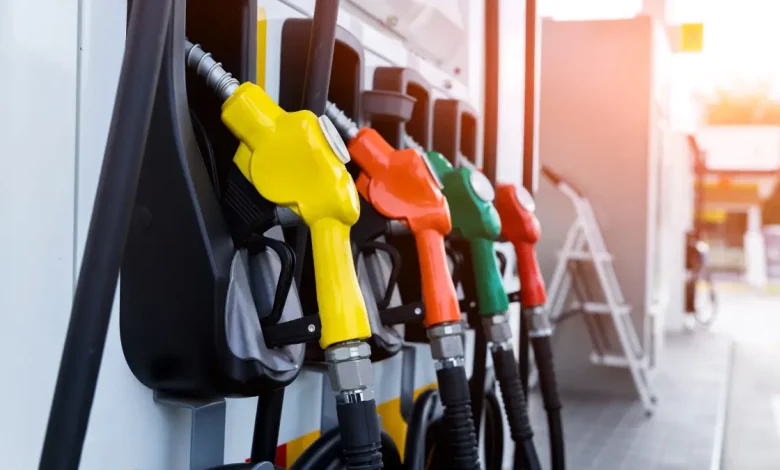
Petrol prices in the country are set for a dramatic upswing in July. Global tensions have thrown the international oil market into disarray. A spike in crude oil prices and a weakening rand are poised to reverse earlier predictions of a modest fuel price cut. This puts further strain on South African motorists as petrol prices continue to rise.
International Conflict Sparks Oil Surge
The sharp turnaround in global oil prices has been driven by renewed hostilities in the Middle East. The situation intensified after Israel launched air strikes on Iran, prompting retaliatory missile attacks. This exchange has amplified fears of a broader conflict across the region. The region plays a vital role in the world’s oil supply, accounting for roughly a third of global crude production, which in turn impacts petrol prices significantly.
Oil prices reacted immediately. Brent crude jumped from around $68 to $73 per barrel in a matter of days following the escalation on 12 June. According to Bloomberg, prices soared by as much as 13% after Israel’s aggressive action. The geopolitical instability mirrors the energy market shock of 2022. When Russia invaded Ukraine, it caused oil prices to surge to $78 per barrel.
Initial Projections Now Obsolete
Before the outbreak of hostilities, the Central Energy Fund (CEF) had forecast slight decreases for fuel prices in July. The mid-month snapshot—based on oil trading before the attacks—projected the following reductions:
- Petrol 93 – Down 10c/litre
- Petrol 95 – Down 7c/litre
- Diesel 0.05% – Down 13c/litre
- Diesel 0.005% – Down 12c/litre
However, these figures are now outdated. They were calculated based on a barrel price of $68—now nearly 7.5% lower than current trading levels. With oil climbing, those modest drops are almost certain to be reversed, making a petrol price increase all but inevitable.
Rand Weakens as Global Investors Flee
Adding further pressure, the rand has also dipped in response to global uncertainty. The local currency, which had been gaining ground earlier in 2025, fell from R17.80 to R18.00 to the US dollar following the news of the strikes. This dip makes imported commodities like fuel more expensive since oil is priced in dollars, thus impacting petrol prices.
During the first four months of the year, the rand averaged R19.92/$. This is a significant improvement from R20.44/$ in the same period last year. The improvement helped ease import costs and contributed to lower fuel prices, which dropped by nearly R1 per litre earlier in the year.
But that momentum now appears under threat. As international investors pull out of emerging markets amid heightened risk, the rand’s value could face further downward pressure. A weaker rand paired with surging oil prices sets the stage for a potential double blow at the pumps, affecting petrol prices for consumers.
Could Relief Be on the Horizon?
There is some hope that this blow might be softened. According to the Bureau for Economic Research (BER), the currency markets stabilised shortly after the initial wave of panic. If the rand manages to regain lost ground by early July, it could help mitigate the projected fuel price spike.
Still, much depends on whether the Middle East conflict escalates further. Israeli Prime Minister Benjamin Netanyahu has pledged continued military action targeting Iran’s nuclear programme. Meanwhile, Iran’s Supreme Leader Ayatollah Ali Khamenei has vowed severe retaliation. This comes after confirming the loss of military commanders and nuclear scientists.
Brace for Impact
With conflict rattling global oil markets and the rand slipping, motorists in the country should brace themselves for an unwelcome increase at the pumps next month. Exact figures will only be confirmed closer to the first Wednesday of July. However, the odds are firmly stacked against the possibility of any fuel price cuts. The short-lived hope of cheaper fuel has been dashed by global events that continue to ripple through our economy.
Related article: Petrol Prices To Drop in June 2025: Here’s What To Expect




What a biased, devoid of fact kind of article, stating the ‘aggressive’ Israel attacking Iran as the reason to our petrol prices rising… You ought to be ashamed of this kind of heretical, biased, discriminatory kind of journalism… Hope to never hear from you again.
Thank you for taking the time to share your concerns. Our intention with the article was not to take a political stance but to highlight one of several global factors that economists and energy analysts have cited as influencing international oil prices, which in turn affect local fuel costs in South Africa.
We strive to provide balanced and factual reporting and will take your feedback into account as we continue to improve the way we communicate complex global issues to our readers.
Thank you again for engaging with our content.
The price changes ar irrelevant. 25% of the fee goes to the regime. They should fire some people and remove the tax.
Thanks for sharing your views.
The article focuses on the price changes and their practical impact, not on how fees are distributed by government. Concerns about how public funds are used, including taxes and administrative costs, are best addressed through official oversight channels. Many citizens continue to call for greater accountability and efficiency in public spending.